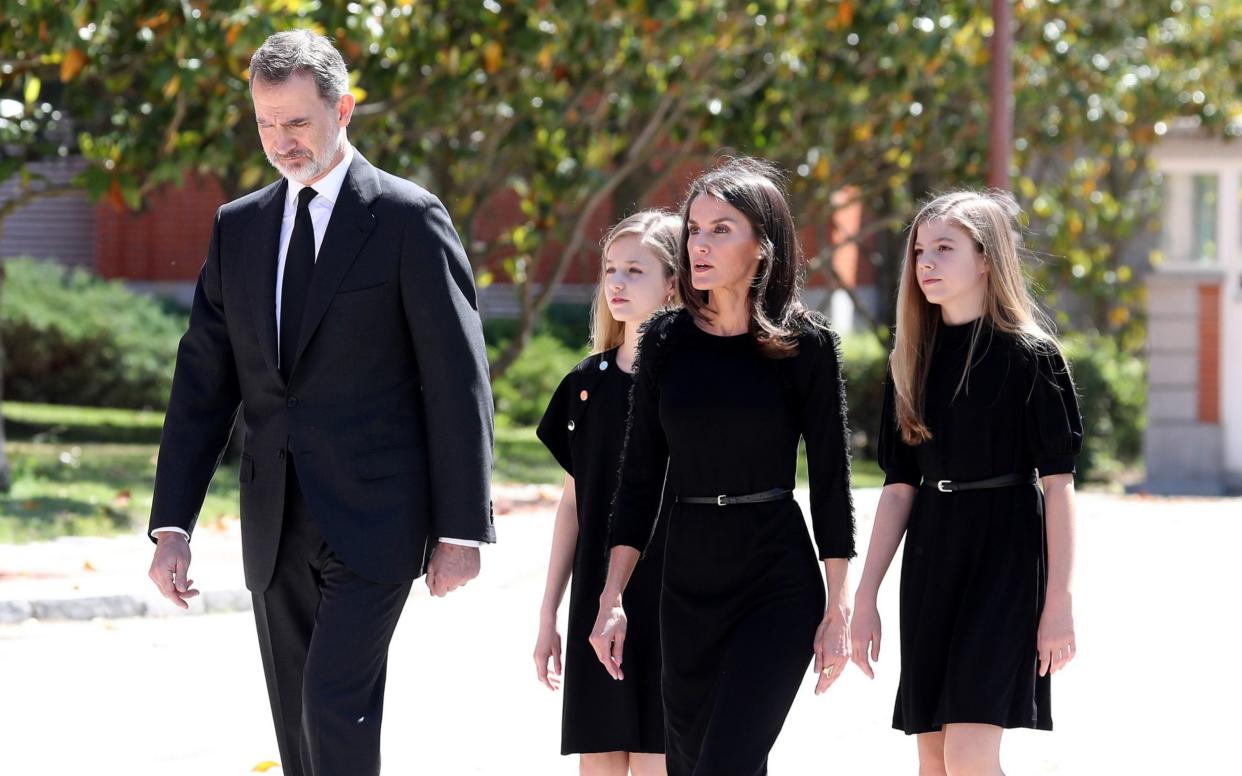Spain holds minute's silence at start of 10-day mourning period

Spain on Wednesday began a 10-day mourning period with a minute’s silence to remember the dead from the country’s coronavirus crisis.
Flags flew at half mast and black crepe bows were attached to the national banner at the beginning of the longest period of mourning since Spain returned to democracy in the 1970s.
More than 27,000 people have died from the disease, according to official figures, but the true toll could be far higher.
King Felipe, Queen Letizia and their two daughters wore black as they marked the minute’s silence outside their Zarzuela Palace residence.
Spain’s Congress, the lower house of parliament, fell silent briefly before the resumption of a raucous session of political infighting and criticism of Prime Minister Pedro Sánchez’s Left-wing government.
Addressing the prime minister, opposition Popular Party (PP) leader Pablo Casado said: “Mr Sánchez, you’re wearing a black tie at last. Now if you could manage to count the dead correctly, you would reach a new moral highpoint.”
Opposition parties claim Spain’s government is hiding the true extent of the epidemic by only counting cases confirmed by PCR laboratory tests.
Spain’s National Epidemiological Centre says that 43,000 people more people have died in Spain in the past two months than would normally be expected at this time of year.
Opposition figures also demanded the resignation of the interior minister for allegedly sacking the leader of the Guardia Civil in revenge for a police report critical of the state's decision to allow a march on March 8 to mark International Women's' Day, despite warnings of the spread of Covid-19.
The Guardia Civil report, handed to a judge who is investigating the government’s delegate in the capital for abuse of office in permitting the march less than a week before Spain declared a state of emergency, includes serious errors, such as stating that the WHO declared Covid-19 as a pandemic in January, instead of on March 11.
As tempers flared, PP spokeswoman Cayetana Álvarez de Toledo claimed that the father of Deputy Prime Minister Pablo Iglesias had been a terrorist, with the Podemos leader responding by saying he would seek to take legal action.


